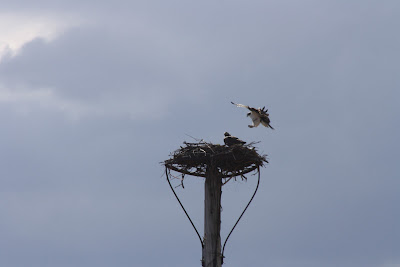“Um, why does this cow have Christmas lights strung around its head?” I ask.
Louise Haycocks strides to the other side of the pine tree where I’m standing next to the cow shed.
“What? Oh!” she exclaims. “He’s out of the pen. Sir Loin!”
Five minutes later, with the help of two dwarf goats, one small dog and a three-legged cat, Louise has Sir Loin, a large bull calf, back in the pen with his mother, an Irish Dexter cow named Buttercup. Louise and her partner, Kirsteen Thompson, live outside of Pugwash on Round House Eco Farm (so named because their house is octagonal). Their building plan was inspired by a 16-sided house in Devon, England, where they used to live.
“What brought you to Canada?” I ask.
“An aeroplane,” Louise replies (so I write the word as it sounds with her British accent).
“I’ll be the sensible one,” states Kirsteen, who was born and raised in Canada; she met Louise in Nigeria where they were both volunteering with Cuso International, a non-profit development organization. Kirsteen joined Louise back in England.
“We lived in the countryside,” Kirsteen explains, “but the countryside there is very different; it’s quite crowded.”
So they landed in Quebec and bought a camping trailer to begin looking for land in northern New Brunswick. Their search ended, finally, in October just outside of Westchester, where they found a little cabin for sale and spent their first winter making plans.
“It was the end of the line,” Louise quips and Kirsteen adds, “We wanted to live by the sea, for some obscure reason.” (They had cycled together through Nova Scotia 10 years earlier and Louise had been quite taken by the name ‘Pugwash’.)
It was the apple trees that attracted them to the nine-acre property on Miller Road.
“When you’re looking for land, you have to find something that speaks to you, that you like,” Kirsteen says.
“It has to speak to both of you,” Louise interjects.
They now own 20 acres because along with the cows and goats, they keep three horses and a pony, a pig which produces piglets every spring, and a large flock of chickens that includes a peacock. Like most modern farmers, in order to support the farm, Louise and Kirsteen have off-farm jobs (in adult education and educational technology).
“It’s not a hobby farm because we do have some income,” Kirsteen explains, “but it’s how we like to spend our money. Partly we do it because we want to eat food that we know where it came from. That’s how we started. Pigs and chickens are raised in such terrible conditions that we won’t eat them. We raise chickens, turkeys, pigs, eggs, of course, plus one calf a year which is our beef.”
Hence the aptly named Sir Loin who was decorating himself with lights from a small tree in the middle of their circular driveway as this interview was taking place.
They don’t do their own butchering; they are quite pleased with a local butcher who takes care of their provincially-inspected pork, which is the product they sell.
“We don’t have a problem with killing the animals,” says Louise, “it’s just that the butchers know what they are doing. I can’t imagine where we’d start! It’s not about us doing everything ourselves. It’s never been about that. It’s about knowing what we were eating. It’s about the food. And what we’ve discovered along the way is how much better the food tastes. But in the beginning, it was about the industrialization of animals.”
Do they get attached to their animals?
“Well, not to the chickens,” Louise and Kirsteen answer at the same time.
“We had a wonderful boar but we had to butcher him because he was getting too big to breed younger sows,” says Kirsteen. “He was a wonderful pig. You’d scratch his belly and he’d roll over. He was the sweetest, most gentle boar you could imagine but he was too big. You can’t keep pigs as pets.”
“It’s not as difficult as you might think,” Louise says. “It becomes the only decision that is sensible. When we started, we realized how easy it is to become a collector of animals so we said that what we would try and do is for everything to have a use. Like the peacock,” she adds wryly.
“He’s alright,” says Kirsteen in Pointless Percy’s defence, who came to Round House Eco Farm a year ago as a rescue.
It’s not just their own meat they enjoy. Thanks to their gardens, they freeze vegetables to eat throughout the winter.
“We spend very little at the grocery store,” Louise admits.
Less than $100 a month.
“But I put store-bought cream into my coffee,” I point out.
“Only because the cow went dry earlier than we expected this year,” Louise answers and I’m disappointed to miss out on the opportunity to taste Buttercup’s other contribution to the couple’s self-described obsession with good food.
For that is what Kirsteen identifies as the most satisfying part of this life: the food.
“We made our own bacon the other day, we smoked our own bacon, and it was so good. When you have a meal and everything is from your own land, it’s wonderful.”
Photo: Louise and Kirsteen check on Priscilla and her two-day old piglets (there are 8 of them).










